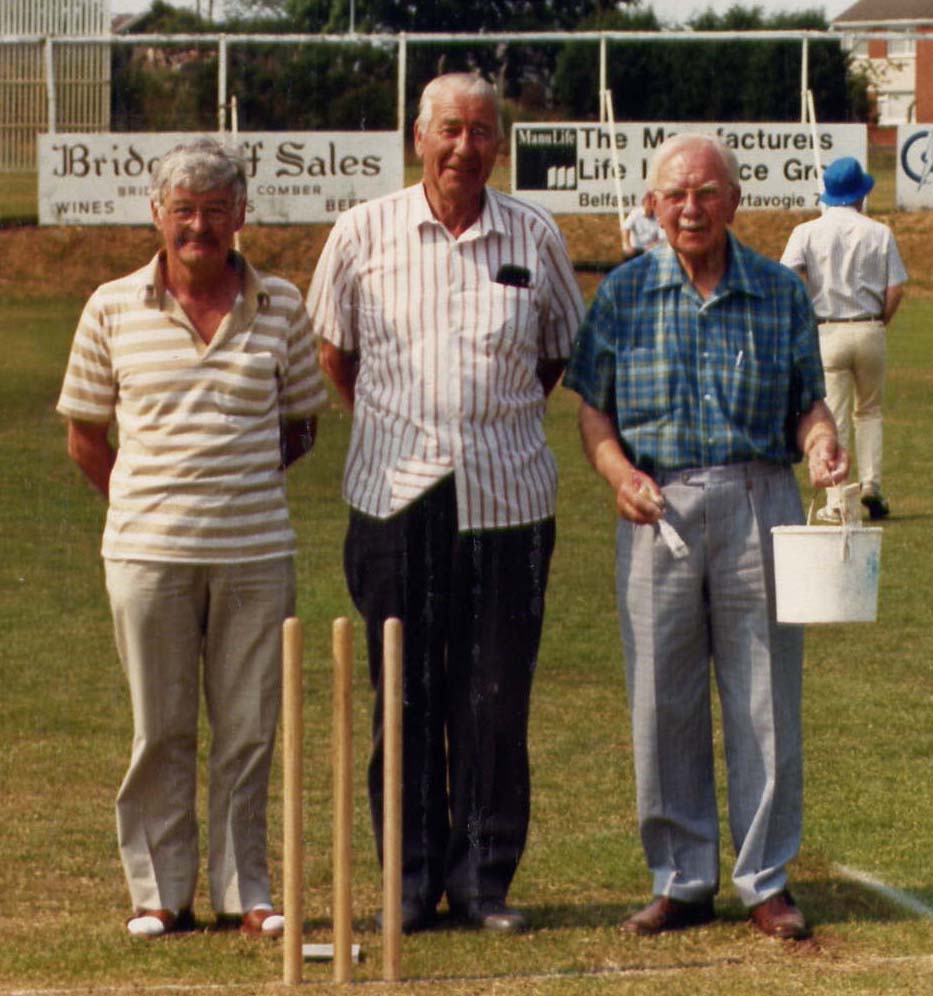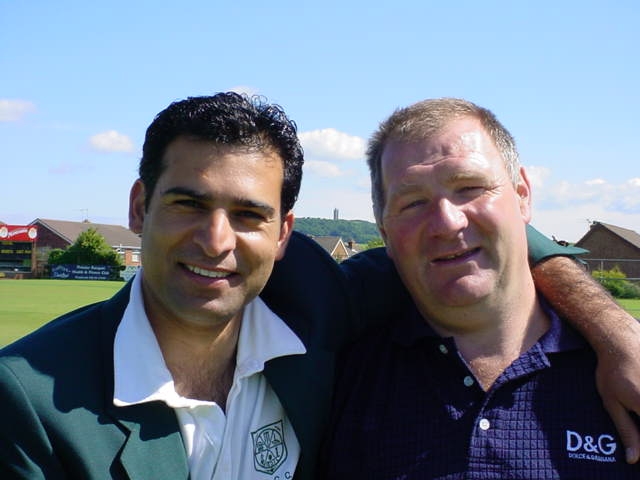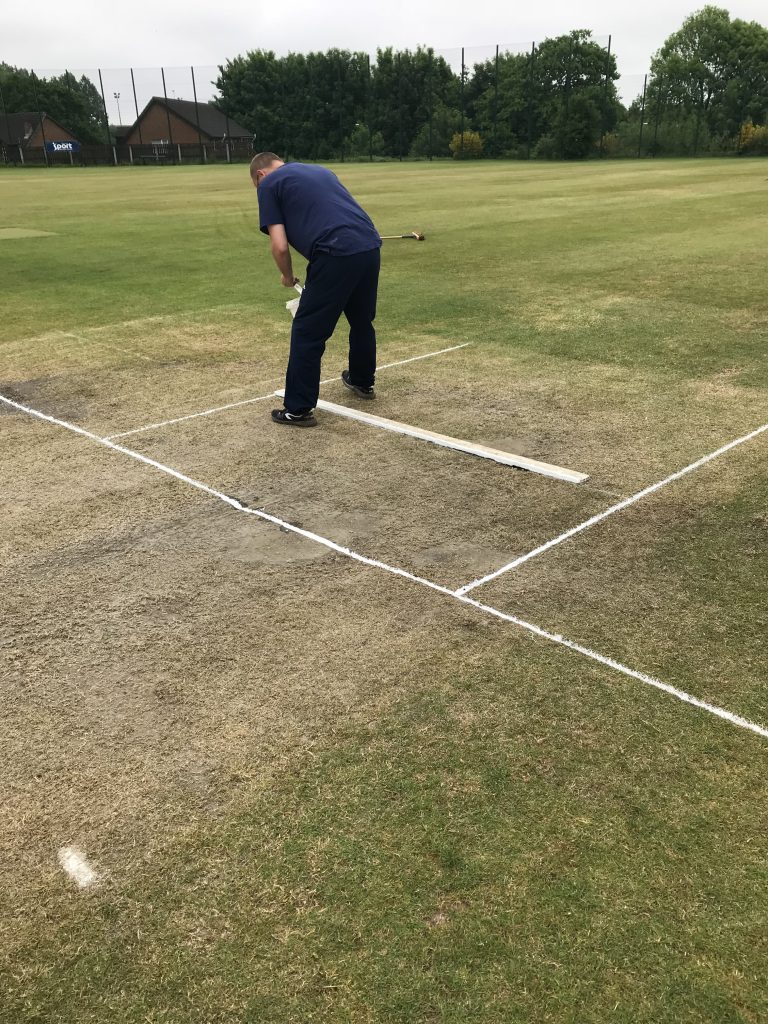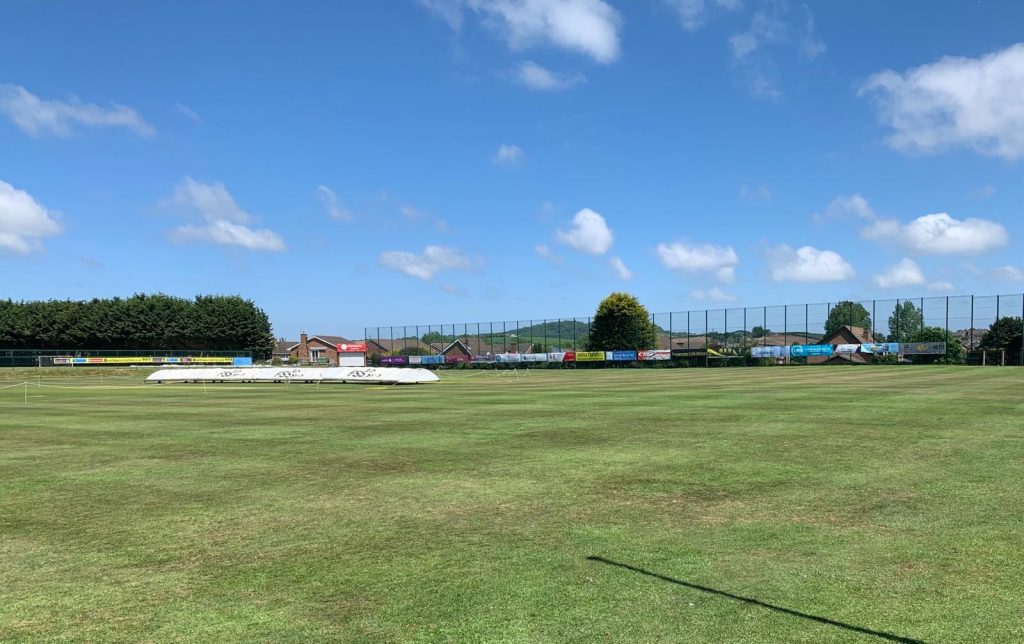
A key role within our club is that of Groundsman and as early as 1876 we know that much work was done on the levelling of the former Bleach Green giving us a ground that is the envy of many other clubs.
We know that Arthur Clay, our first Professional in 1884, was excellent in his ground maintenance, and for years afterwards he was consulted when trying to find a sound Professional player with knowledge of how to prepare and repair wickets.
Often the Professional arrived at Comber Railway station where he could choose a helper, ‘the boy’, to assist in his many ground’s duties.
Gradually these entangled roles of Professional and Groundsman became separated and it was unusual to find a Charlie Lowings (1906-1910) who brought excellence to the roles of player, coach and Groundsman.
Most of our Professionals were capable when dealing with the ground preparation. Still, occasionally, there was a problem, as in 1937 when Tony Riddington took an early boat home, feeling the wrath of the Chairman (Willie Andrews) who stated that, although a good cricketer, he was the laziest man that he had ever encountered.

Within living memory, we have witnessed the enormous work of Willie Dempster and Walter Wishart in developing the top ground. The Green was Willie’s second home!
Sammy Haire (pictured above) enhanced the ground giving it a justified reputation as one of the best in the country and Raymond Moreland carried on working tirelessly to keep it there.

Taimur Khan wound the clock back to the days of the Professional’s input with great knowledge of wicket preparation and repair.
For several years Paul Revill, a professional and highly thought of greenkeeper, brought his expert knowledge and expertise to the ground.
For the last few years Colin McCaughey, as Ground Convenor, has directed operations where expectations are always high on preparing first-class wickets, carrying on the fine North Down tradition of groundmen.

But was it actually always the case?
McColl in ‘59
Many players have been involved in helping at The Green over the years and in 1959 much help was needed.
There was difficulty in recruiting and retaining a Groundsman mainly because of financial restraints. John McNish, Jimmy Cairnduff, Frank Douglas and others arrived and departed at regular intervals.
In 1958 Frank Douglas was engaged at £6 10 shillings per week plus stamps, but Frank was dismissed as he had failed to boil the kettle and roll the wicket at the interval between innings!
So Jimmy Cairnduff was approached in this emergency to work evenings after 6 pm and on Saturdays for £4 per week.
The club was determined to stabilise the situation in 1959 and advertised in the Belfast Telegraph and the Newtownards Chronicle from which they received two applicants.
James Macdonald further, was to have a word with the Manager of the Unemployment Office and from this inquiry Mr Foley was recommended but had to go through an interview with the Grounds Committee. Mr. Foley’s reputation as a good worker and being a local should have secured the position. Not so.
Enter R McColl who seemingly had walked from his native Armagh town, presumably was interviewed, although no account exists, was appointed and signed his contract on the 29th of April 1959.

It didn’t take long for the Chairman to deem Mr. McColl’s work unsatisfactory but Willie Dempster indicated that he would supervise him.
It was suggested that his £6 per week was inadequate and that the club should help with his accommodation.
After examining the legal and insurance position he was permitted to sleep in the Pavilion where he was given a mattress by the Chairman and a kettle from Jimmy Boucher.
He was allowed to return home one week in four to be determined by Chairman and Willie Dempster but the Guinness bottles had been unearthed in the woodworm-infested wooden lockers and his home visits were curtailed.
Still keeping faith, McColl was granted his benefit match against Lisburn and a list for donations was posted on the club notice board.
His weekly wage was given to young Roy Beck by Jimmy Boucher and Roy recalled having to go to the pub to deliver it.
This intolerable situation couldn’t go on and on the 8th of June the Committee turned to a local man of some repute – Roy Drain
There’s another story.


